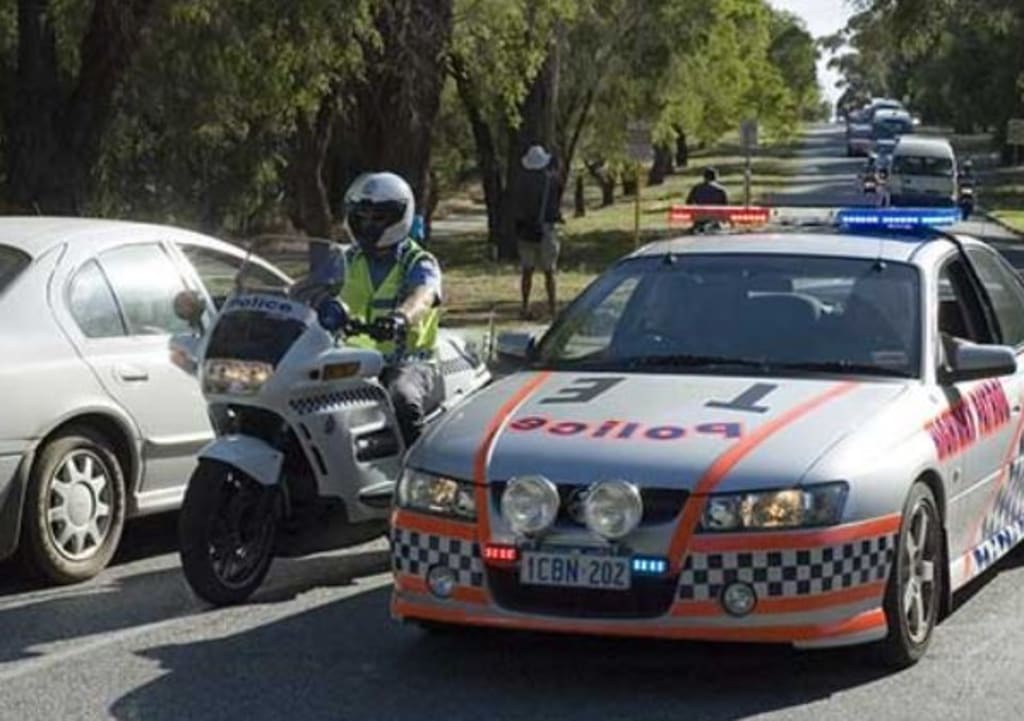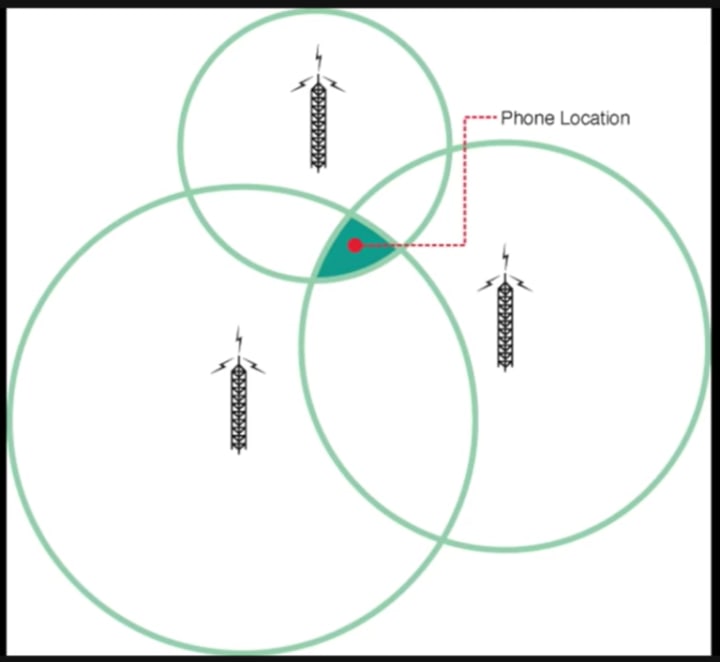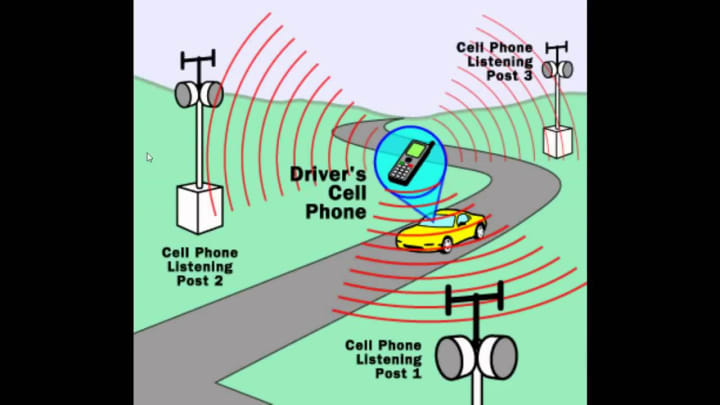
If they only have a mobile number then it becomes slightly difficult to pin-point the location. It’s not impossible but it just gets difficult.
But if Police have an IP address then it becomes much easier. In fact, it is easier to catch a stupid cybercriminal.
Can Your Phone Number Help Track Your Exact Location?
Answer is No.
Your phone number does not point out the exact details of your location. It is a different case if GPS is actively working or an application is providing the details.
So, how do police track the location by knowing the contact number?
The concept of triangulation is used for this purpose.
Similarly, mobile networks use the concept of triangulation. Three adjoining networks are present and they together determine the area of that device.

This clearly means that the phone number can never trace the exact location. It can only provide a specific range of location.
After reaching in that particular zone of range, manual searching needs to be done.
So, what if there is a huge society with multiple buildings having hundreds of floors and flats? Then it becomes next to impossible.
If the phone is off then nobody can track it. Sure, the police can know the location where the phone was active last time. But if the criminals move after switching it off, it is again next to impossible to track the live location.
How Can Police Track IP Address of a Criminal?
Every online device has a unique IP (Internet Protocol) Address. The cybercriminal’s Internet Service Provider (ISP) can easily provide the details of its users. If the crime is taking place on social media, these social media platforms provide the details as well.

[Facebook got 49,000 requests for user data from the Indian government in 2019: Business Insider Report]
So yes, it is completely possible to know the exact pinpoint location of any person on the internet.
Practical Example:
Let’s say that a person is involved in cybercrime and the police need to find the location of this person.
They will search for the IP Address. Various websites have all the data and tracking about the IP Addresses. Once the police get the IP Address, they will approach the ISP.
Who is an ISP? It can be anyone who provides you the internet service. It can be Jio, VI, Airtel or any local internet Service Provider.
These Internet Service Providers provide IP Addresses to its users. Hence, they keep a track of each and every IP address that they assign. Moreover, your ISP knows everything about the websites you visit, the things you surf on the Internet, and various details. Even your contact details.
The police will simply ask about the physical address of this IP and the ISP will readily provide it too.
X-tra Bytes-
Police in India
In India, central and state law enforcement agencies gain access to cellphone location data whenever service providers, once asked, provide them with call data records. Apart from helping in investigation of cellphone thefts, this also helped police crack a murder case in Delhi last December, when the suspects had switched off their phones but carried them to the scene of the crime.
Accessing such information is subject to certain permissions. Only an officer of SP rank — DCP rank in a commissionerate — can write to the nodal officer of a service provider seeking call data records. “We need permission from the DCP heading a district or from an ACP if the DCP has vested those powers in him,” a Delhi Police officer said. But can police not misuse these records? “There is self-regulation; there have been instances where policemen illegally obtaining records have been sent to jail,” the officer said.
The US case, Carpenter v United States, involved armed robberies since 2010 in which Timothy Ivory Carpenter was accused of planning the robberies, among other charges. Prosecutors relied on cellphone records that showed Carpenter’s phone was nearby when several of the robberies happened; he was sentenced to 116 years in prison.
content credit- priteshpawar.com






Comments
There are no comments for this story
Be the first to respond and start the conversation.